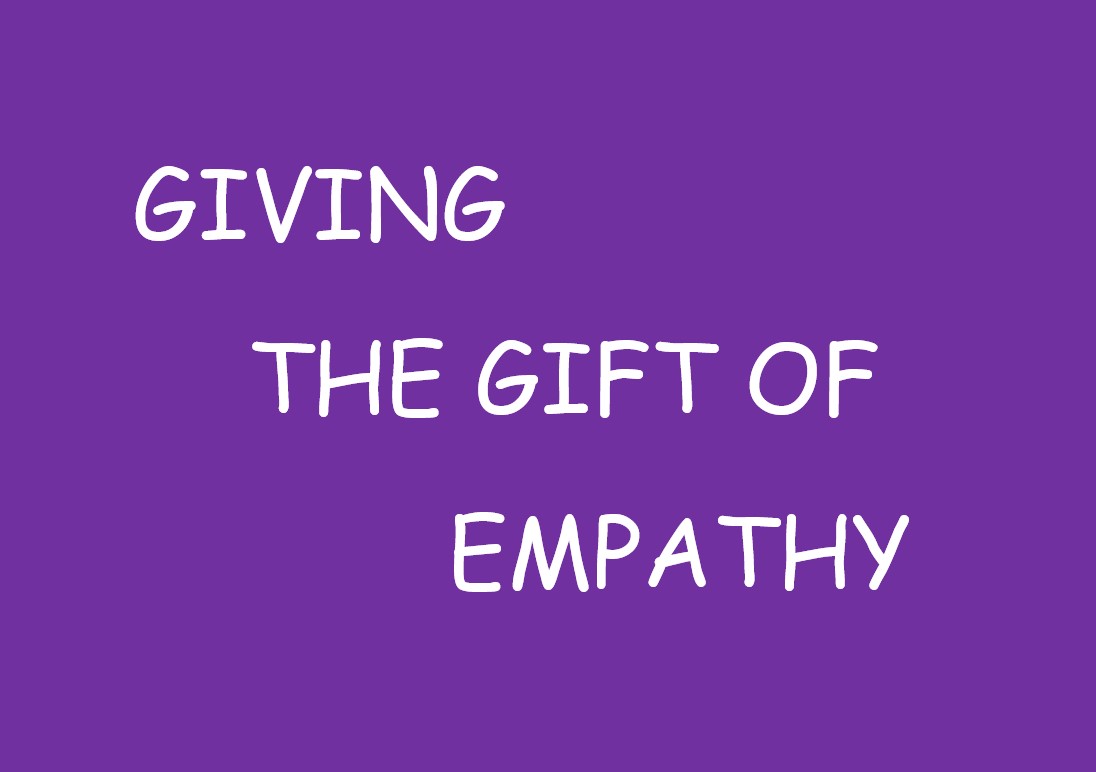
As Christmas fast approaches, some are still struggling with what gifts to give and how much to spend. While presents and festive wrappings are fun to get, there is one priceless gift that lasts a lifetime and doesn’t cost a cent: empathy.
At a time when tensions are high and conflicts seems to be everywhere, showing understanding and compassion is in great demand. Empathy and Compassion: Building a Stronger Support Community – (b-present.org) Here are some basic tips to help you spread the love of the season and lift the spirits of those you meet with an empathic encounter:
— What is Empathy? Empathy is sometimes confused with sympathy. Empathy is more than feeling sorry for or taking pity for someone. In addition to having concern and compassion, empathy expresses that you understand and have experienced what the person is going through.
Expressing empathy is a way of communicating that you not only know but that you also feel what they are experiencing. It is a way of saying to the person, you are not alone.
— Why is expressing empathy difficult ? Empathy is more difficult to express than sympathy because it requires us to access our own pain and distress. Many times, and a lot of men are guilty of this, it is easier to offer advice or to try to reassure a person in distress than it is to just be present with them in a supportive way.
When a person is empathic, they take on the other’s unpleasant experience and are simply with the person in their upsetness. This ability requires that the listener can not only feel what the person feels but also stay focused on the one in distress. It is tempting for the listener to shift their attention away from the other and back to their own experience.
–– Why Empathy is so important and healing. Empathy is so important because it allows people to connect with one another. When a person is emotionally upset, they feel not only bad but also isolated from others. Often they feel crazy or that no one can really understand what they are going through. Expressing empathy reassures them that what they are feeling is normal.
Neurologically, making a human connection calms limbic panic and helps restore the distressed person’s access to their cortex. Reestablishing this connection not only reduces the upset but enables them to think creatively about dealing with their difficult situation.
— Tips for improving your empathy skills.
1. Before having a conversation, make sure that you really want to listen and be present. If you’re not, then don’t.
2. Focus your full attention on the person and what they are saying. Touching a hand or shoulder can convey your support and caring.
3. Relax. Listen without interrupting or trying to fix a problem or cheer the person up. Remember, being empathic means less is more. You don’t have to be clever or have solutions. You don’t even have to talk. Being present in a non-anxious, supportive way is the goal.
4. Be mindful of the feelings that the person’s words elicit in you. Be aware. Does the issue trigger or provoke upsetting emotions in you? If it does, it’s okay to share your feelings or even to talk about them when there is a non-interruptive opportunity.
5. Reassure the person that you understand and feel what they are going through. Let them know that they are not alone. Becoming a Good Listener: From Advice Giving to Non-Anxious Listener | Pastoral Counseling Syracuse NY (revmichaelheath.com)
With a little practice, we can overcome the natural tendency to cut folks off with premature reassurance or to problem-solve when they are distressed. Indeed, there is a genuine sense of relief that comes from realizing that one doesn’t have to work so hard to be supportive of a person in need.
That said, it’s important to realize how healing taking the time to emotionally connect can be for one who is distraught and needs connection. Merry Christmas !
Rev Michael Heath, LMHC , Fellow AAPC 12 /19/ 2023



